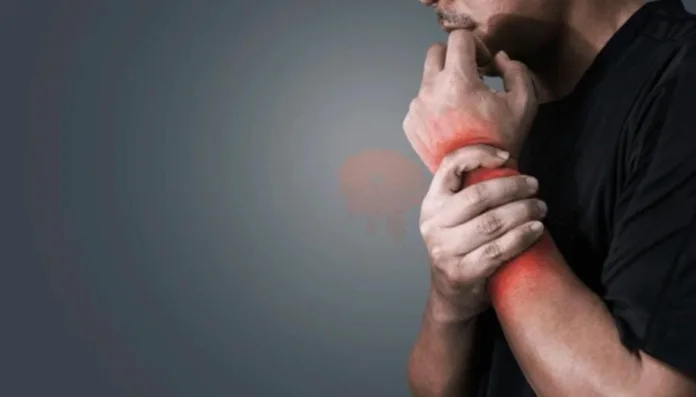Musculoskeletal injuries resulting from car accidents are frequently encountered and can result in significant bodily harm, ranging from whiplash to injuries affecting the shoulders and legs.
The repercussions of these injuries can be substantial, impacting various aspects of daily life. Understanding the mechanisms behind these injuries and their potential long-term implications is vital for mitigating future harm.
Exploring the types of musculoskeletal injuries common in car accidents, their effects on daily functioning, and adopting appropriate care and treatment strategies can help prevent enduring issues from developing.
What Are Musculoskeletal Injuries?
Specialized orthopedic care and pain management treatments address musculoskeletal injuries, covering acute injuries and chronic conditions affecting muscles, bones, ligaments, and tendons, ensuring comprehensive care within the neuro-musculoskeletal system.
Types of Musculoskeletal Injuries
Musculoskeletal injuries encompass fractures, sprains, strains, dislocations, and soft tissue damage, each requiring specific treatments. Fractures caused by trauma, like falls or impacts, involve bone breaks treated with casts or surgery. Sprains from ligament tears due to twisting, demand rest, ice, and physical therapy.
Strains stemming from muscle or tendon overuse need rest, stretching, and sometimes medication. Dislocations, where joint bones are displaced, need immediate relocation and rehabilitation. Soft tissue damage, like tendonitis from repetitive motion, requires rest, therapy, and occasionally surgery or injections for recovery.
How Do Car Accidents Cause Musculoskeletal Injuries?
Car accidents frequently lead to severe musculoskeletal injuries, such as spine damage and nerve injuries, due to the powerful impact forces involved, necessitating immediate medical attention. One common injury, whiplash, results from sudden head movements during collisions and can strain neck muscles and ligaments significantly, often requiring physical therapy for recovery.
Symptoms like neck pain, stiffness, headaches, and limited range of motion indicate soft tissue damage from the rapid extension and flexion of the neck. Without prompt medical intervention, untreated whiplash can result in long-term musculoskeletal issues. Physical therapy is critical in rehabilitating neck muscles, improving mobility, and preventing chronic complications through targeted exercises and manual techniques.
Meanwhile, seat belts, crucial for safety, can inadvertently cause musculoskeletal injuries such as fractures and spinal damage during high-impact collisions, as noted by experts like Cooper. Improper seat belt positioning across the abdomen can exacerbate these injuries, emphasizing the importance of securing seat belts correctly across the shoulder and hips to minimize such risks. Similarly, airbag deployment, crucial for safety, can also lead to musculoskeletal injuries like dislocations and soft tissue damage, necessitating subsequent orthopedic treatment. Despite reducing head and chest injury risks, the force of airbag deployment can harm upper body areas, with orthopedic specialists specializing in diagnosing and managing these injuries through personalized treatment plans aimed at restoring mobility and function to affected areas like shoulder dislocations and rotator cuff tears caused by airbag deployment.
Common Musculoskeletal Injuries from Car Accidents
Car accidents frequently lead to various musculoskeletal injuries, necessitating specialized medical care and often resulting in persistent pain. Rehabilitation overseen by an orthopedic specialist is crucial to address these injuries effectively. Neck and back injuries are expected outcomes of car accidents, causing pain and herniated discs and often requiring chiropractic care due to sudden impacts during collisions.
These injuries can result in strains, sprains, or fractures in the neck and back, with symptoms ranging from localized soreness to radiating pain or numbness in the arms or legs, indicating potential nerve involvement. Timely diagnosis is essential to prevent long-term complications and chronic pain, with chiropractic care offering a non-invasive approach focusing on spinal realignment and natural healing for symptom relief and functional restoration without the need for surgery or medication. Shoulder and arm injuries, such as rotator cuff tendonitis and muscle strains, are also common among car accident victims, often requiring specialized care for accurate diagnosis and personalized treatment plans.
These injuries, caused by repetitive motions or sudden trauma, can lead to pain, weakness, and restricted movement, with treatment options ranging from physical therapy and medications to minimally invasive arthroscopic surgery for faster recovery. Similarly, hip and leg injuries resulting from car accidents, like dislocations and fractures, often require physical therapy to aid in effective rehabilitation.
These injuries can severely impact mobility and daily activities. Physical therapy focuses on exercises, stretches, and manual techniques to restore strength, flexibility, and function in the affected areas and facilitate recovery.
Long-Term Effects of Musculoskeletal Injuries from Car Accidents
Musculoskeletal injuries from car accidents can lead to lasting issues like chronic pain and disability, requiring ongoing orthopedic care and rehabilitation. Chronic pain and disability often result from nerve damage and are managed by orthopedic specialists who tailor treatment plans to alleviate pain and restore function.
These conditions can severely impact daily life, challenging routine tasks, and diminishing overall well-being. Orthopedic specialists play a crucial role in personalized care, using assessments and therapeutic interventions to help patients regain strength, flexibility, and mobility. This approach supports physical recovery and aims to prevent long-term complications and manage potential chronic pain effectively.
Preventing Long-Term Musculoskeletal Issues from Car Accidents
Preventing long-term musculoskeletal issues after car accidents requires a comprehensive approach: ensuring proper safety measures like seat belt and airbag use and promptly seeking medical care and physical therapy post-accident. This proactive strategy not only aids immediate recovery but also minimizes the risk of chronic complications from untreated injuries.
Seat belts should be correctly fastened across the lap and shoulder to distribute crash forces and prevent ejection, while airbags provide additional frontal crash protection when used alongside seat belts. Prompt medical attention is crucial for treating fractures and nerve damage effectively, as untreated fractures can lead to lasting problems, and nerve damage may require specialized interventions to prevent permanent impairment.
Comprehensive care facilities like Physicians Group LLC offer tailored treatment plans, including physical therapy and pain management, managed by specialist teams that support patients through their recovery journey. Integrating stretching and strengthening exercises like yoga or Pilates into daily routines enhances flexibility, range of motion, and muscle strength, which is crucial for injury prevention and optimizing physical therapy outcomes.
